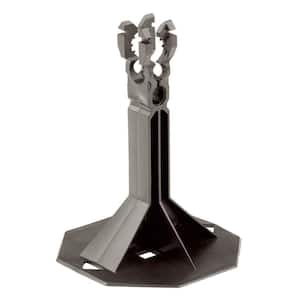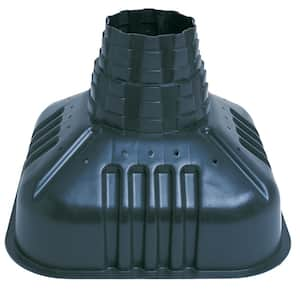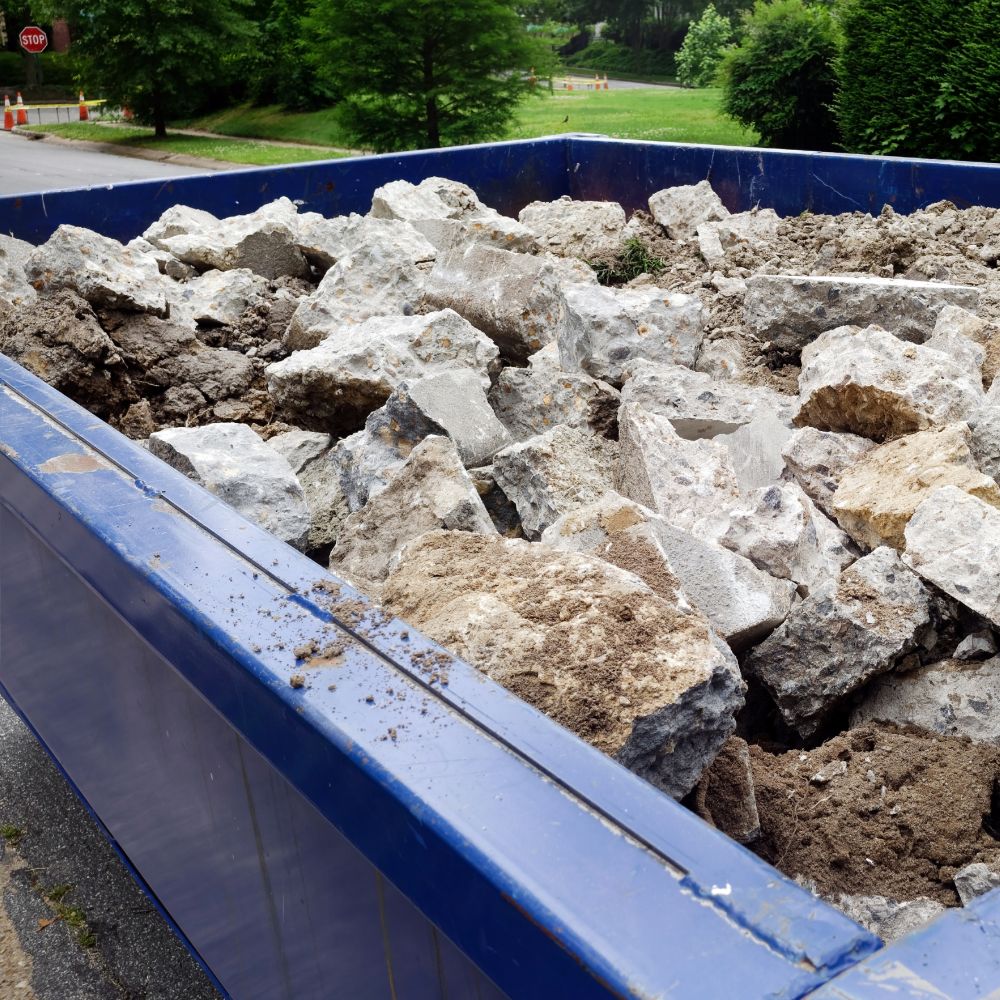
Difficulty
Intermediate
Duration
Over 1 day
Demolished or unused concrete can be harmful to the environment if not disposed of properly. However, construction companies can recycle their concrete to reduce waste and environmental impact. Recycling can reduce demand and costs for raw building materials.
This guide covers the environmental impact of concrete waste, its disposal process and methods of reusing and recycling it.
Why Is Concrete Disposal Important?
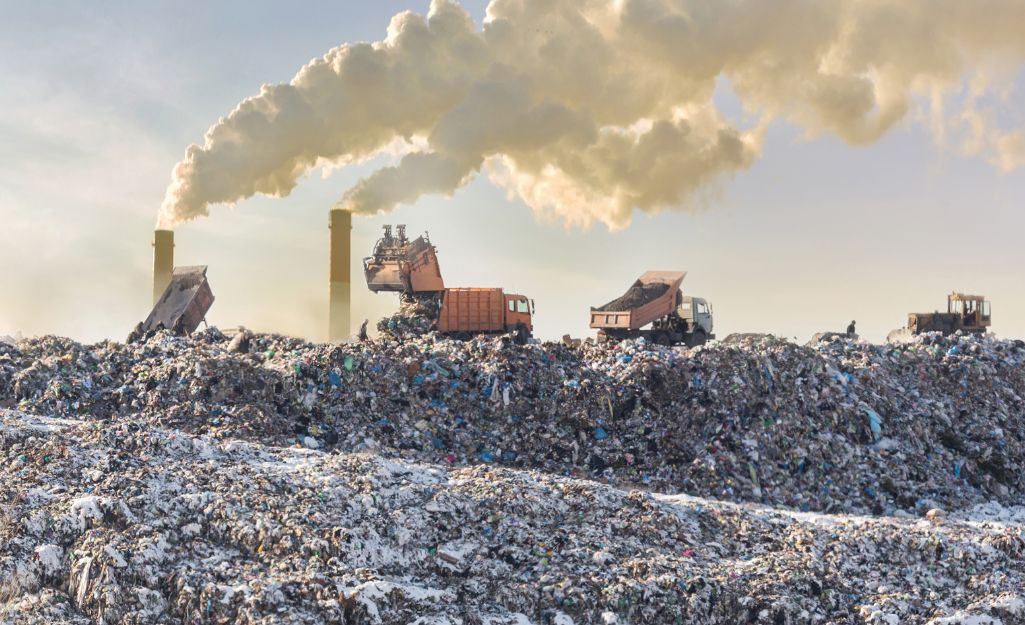
Concrete manufacturing, application and waste create 8% of the world's CO2 emissions. Methane, a greenhouse gas, is released as waste in landfills decomposes. The disposal of concrete waste contributes to the generation of landfill waste and the depletion of natural sand and gravel resources. However, proper recycling and disposal of concrete waste can mitigate its environmental impact and provide many business benefits.
- Recycled concrete is a cheaper aggregate building material than new concrete.
- Reduced waste disposal costs including freight and tippage expenses. Additionally, repurposing and some concrete recycling methods can be done at the job site.
- Crushed concrete and unused gravel can be repurposed for creating new construction materials such as wire gabions and the first layer in road building.
- Builders can gain points towards a LEED certification by using recycled concrete.
Recycling concrete is an important cost saving strategy when your business generates concrete waste. Demolished concrete can be treated to ensure the material carries no contaminants, and unused concrete can be crushed and repurposed at the job site. This reduces the demand for new concrete production, adds efficiency in material preparation and provides a cheaper alternative to newly mined concrete.
Methods of Concrete Disposal
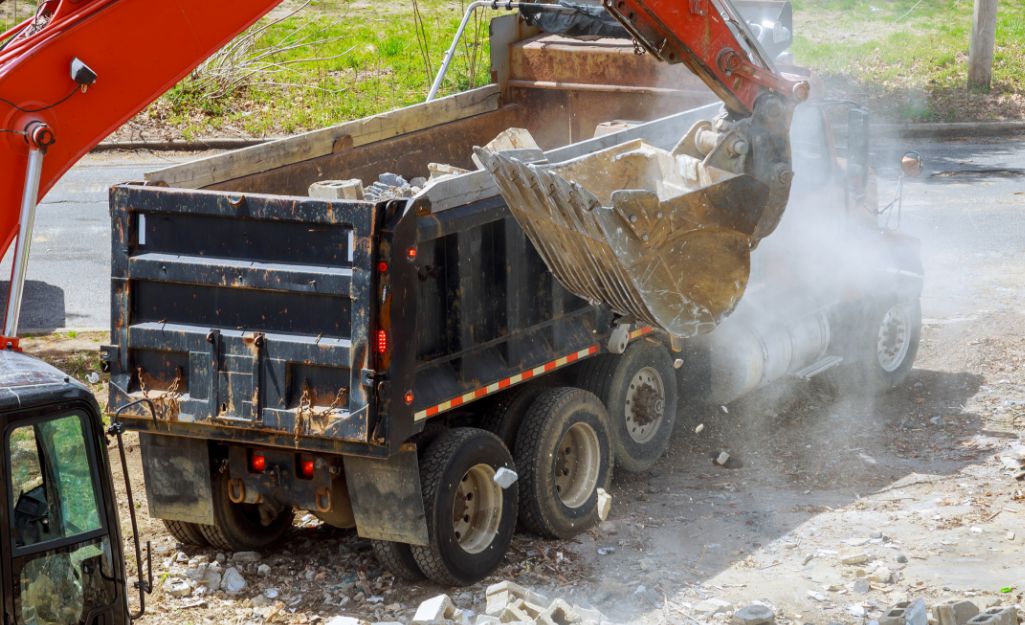
Construction companies need to decide whether they will manage their own waste or pay to have it removed at the end of each job. If you do not have enough trucks to move concrete waste, disposing it yourself will be much more difficult. However, most areas have dumpster rental and junk hauling companies that provide a good first option for concrete disposal.
Before you pay for any disposal services, research the options in your area and learn where each company takes concrete waste. Many companies will take concrete to a landfill, but use a recycling facility or transfer station. Consider whether a disposal company is affordable and offers a proper path to recycling.
Concrete disposal methods include:
- Rent a dumpster. Dumpster rental companies will pick up the dumpster once it is full and dispose of its contents.
- Call a junk hauling company. These companies offer the service of filling their own dumpster with waste from your job site.
- Building suppliers can sell large pieces of concrete to construction companies as riprap for streams and riverbanks.
- Dump it yourself. Take the concrete to a landfill or transfer station.
- Recycle it. Deliver the concrete to a construction and demolition (C&D) waste recycling center facility.
Whether you choose to dispose of concrete yourself or call on another company, plan ahead to make waste management safe and cost-effective. Work with your chosen waste disposal company to schedule when they will deliver and remove the dumpsters. Additionally, let the company know where your job site is and how to access any waste and debris.
Follow these steps for a safe disposal process:
- Estimate the amount of waste for the project and communicate this with your disposal or dumpster rental company.
- Classify each type of debris by material. For jobs with significant waste, you may need separate trips per material.
- Do not mix construction material waste with general debris such as garbage and wrappers from food and tools.
- Establish a designated area to store the construction waste until it is time for disposal. When renting a dumpster, find a place to gather waste until it arrives.
Many types of unused concrete elements can be reused instead of thrown away or recycled. If you have significant amounts of concrete left over at the end of your job, keep it for the next one. If you do not foresee a use for a particular type of leftover concrete, consider donating it to a landscaping company and local donation facility.
Types of reusable concrete waste include:
- Concrete blocks: Typically used for retaining or structural walls
- Concrete mix: Used for pouring driveways, foundation, or setting structures like fences or water fountains
- Concrete chunks: Repurposed for building new roads and parking lots
- Concrete rubble: Irregular concrete pieces are commonly used in building walls and slabs for walkways, porch steps or patios
The main challenges of the concrete removal process are timing and planning. Organize all the waste and debris as you generate it, then fill the dumpster when it arrives.
Concrete Recycling
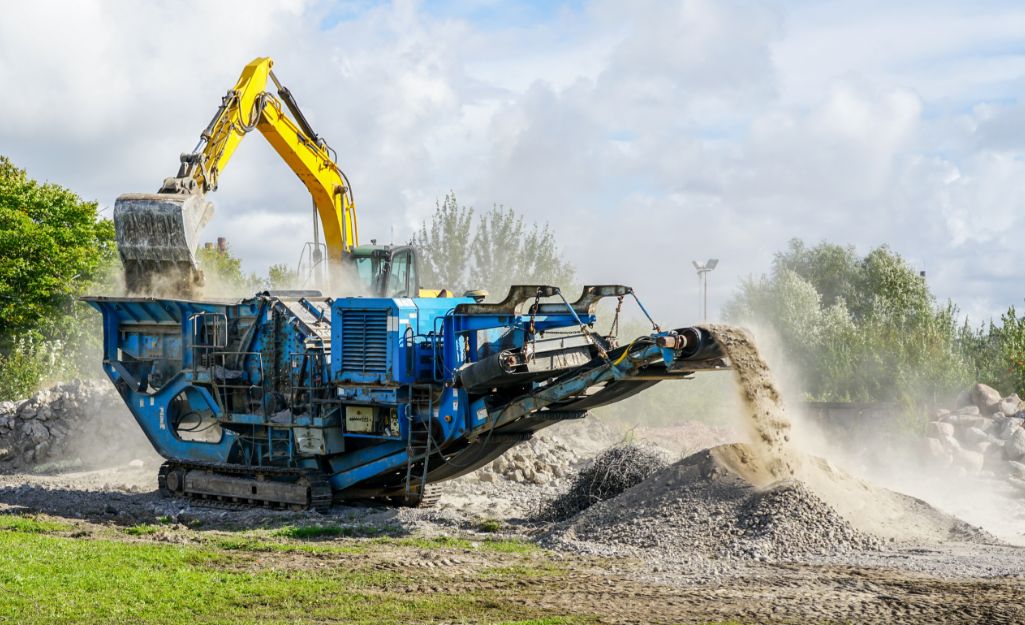
There are numerous benefits to recycling concrete waste for both the environment and construction companies. This process can reduce the amount of material sent to landfills, which leads to lower landfill costs and less strain on natural resources.
One of the most significant benefits of recycling concrete waste is the conservation of natural resources. By reusing the concrete material, less raw material is required for new construction projects. This helps to preserve natural resources and reduce the energy used to produce new concrete.
The recycling process for concrete waste involves breaking down the material into smaller pieces using industrial equipment such as jaw crushers, impact crushers and cone crushers. These machines break down large pieces of concrete into more manageable sizes. Recyclers then feed the broken concrete into a screening machine, which separates the material into different sizes. Any large pieces remaining are crushed again, and the smaller pieces are cleaned and sorted for reuse.
Crushed concrete goes through numerous treatment processes depending on the types of contaminants found within it. These include:
- Handpicking for large pieces of non-concrete material such as wood and tree roots
- Electromagnetic separators for metals
- Air separators for dirt, plastics, wood, paper and other organic matter
- Water floatation separators for plastics, Styrofoam or smaller wood pieces
Then, the crushed material is reduced to an even smaller size for a variety of new applications. These include road building and aggregate bases for new concrete mixes. Some construction companies may consider investing in concrete crushing and cleaning equipment to reduce raw material spend.
Concrete Disposal Cost
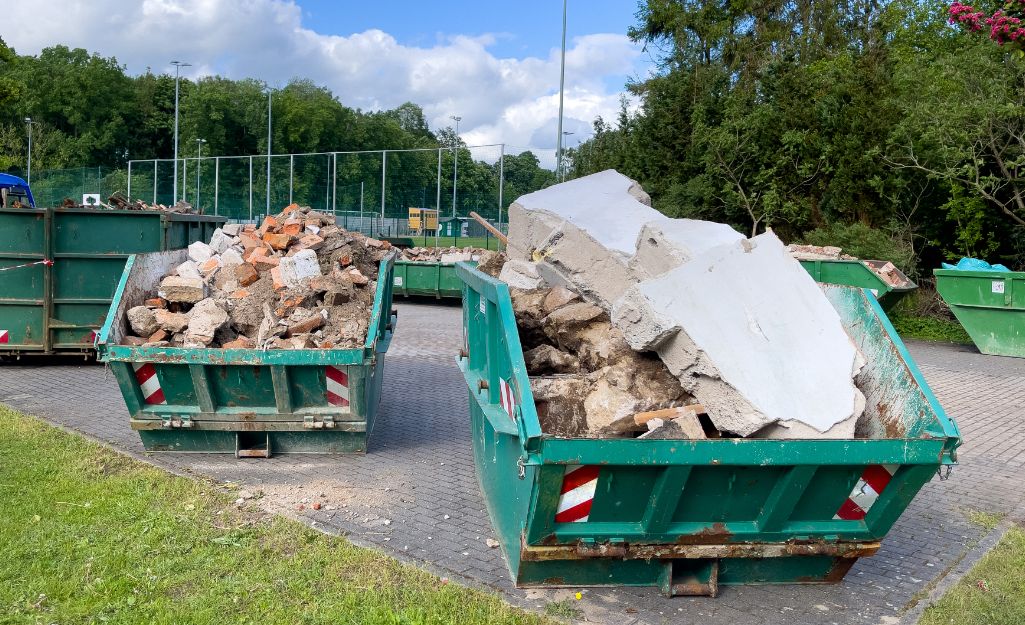
The cost of concrete disposal typically depends on the amount of debris that needs to be removed. Additionally, some methods are more expensive than others. When planning waste transportation for your next job, make sure to ask dumpster renters and junk haulers for quotes so that you can choose the most cost-effective option. Junk hauling services may seem like the best option in most cases, but that can change when you analyze their pricing against other choices.
For example, junk hauling companies often charge per bedload for heavy construction materials such as concrete or asphalt. They typically only allow stacking to a certain height, such as 1-1.5 feet high. The average junk hauling truck has an 80-square-foot bed. This would allow a construction company to remove between 80-120 square feet of concrete at a time. On average, this could equal 2 tons of waste removed for $600.
However, rental dumpsters can usually haul up to 6-10 tons of concrete at an average cost of $350-450. Dumpsters are a more cost-effective option for large amounts of concrete waste, such as sidewalk or driveway removal. A 640-foot sidewalk can weigh up to 8 tons, which would necessitate 4 trips in total for a junk hauling service instead of scheduling a dumpster to be delivered to the jobsite.
More Products. More Tools. More Perks.

Be more competitive and boost your bottom line with Pro Xtra, The Home Depot’s free loyalty program built for Pros. Sign up today to access the enhanced Pro Online Experience, built with the online business tools and time-saving features Pros need.
Build your business with professional grade tool and large equipment rental, including excavator, trailers, trucks and more.
